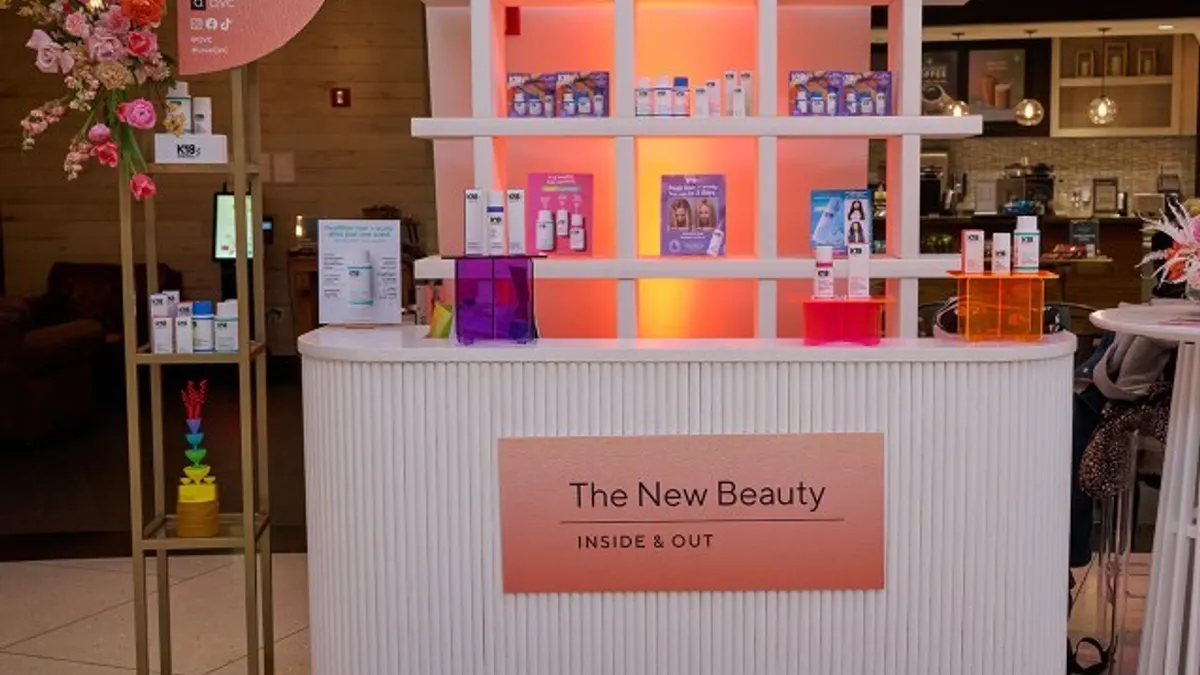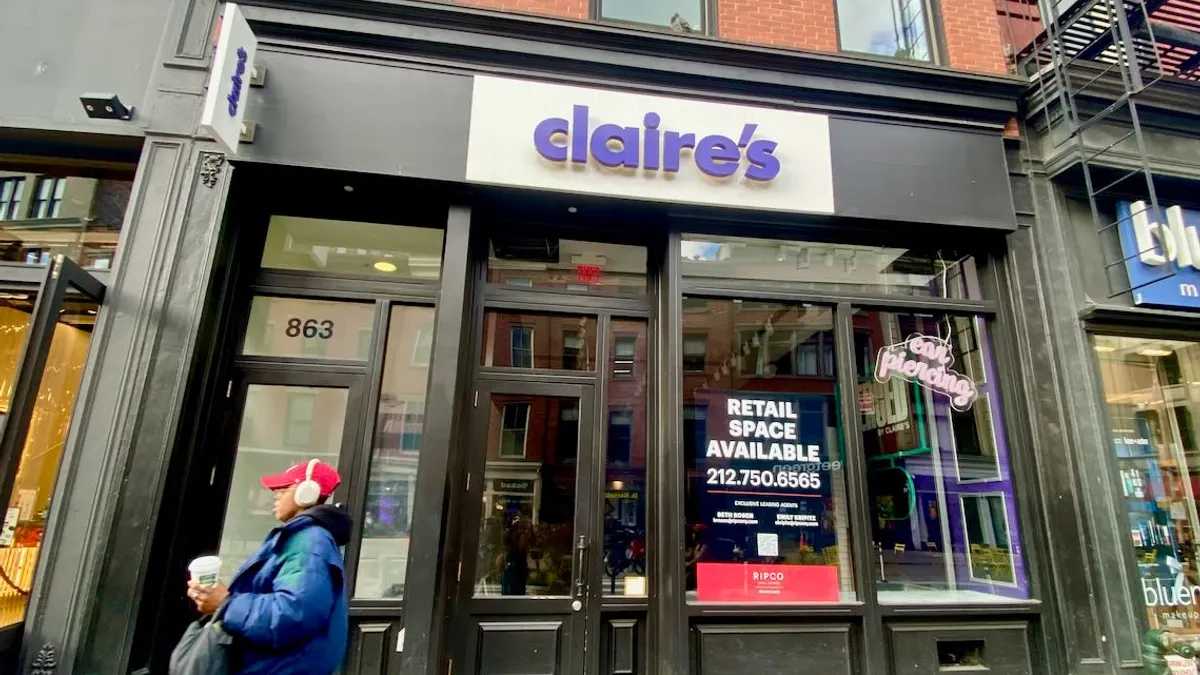The world of sports retail has not been quiet this year. The trouble arguably started in February, when former Lululemon CEO Laurent Potdevin resigned from his position following claims of misconduct. Things got worse for the sector from there.
Nike was the next athletics retailer to come under scrutiny with the departure of Trevor Edwards. The then-Nike brand president was widely viewed as a potential successor to CEO Mark Parker, and his ousting served as a catalyst for a mass exodus of leadership at the company. The reexamination of corporate culture at Nike stretched out over the intervening months, leading to higher salaries for some employees, promotions for others and a lawsuit which alleged that gender discrimination issues at Nike are more systemic than just a few instances.
On the heels of Nike's high-profile issues, controversies about corporate culture have befallen Adidas and Under Armour in recent weeks as well.
In early November, Footwear News (FN) reported that Adidas was facing allegations it failed to treat people of color fairly and failed to promote them. An employee at the company sent new Adidas North America President Zion Armstrong a letter that claimed to speak on behalf of the company's minority employees urging the company to diversify its leadership ranks. Several anonymous sources confirmed the racial tensions to FN. Earlier this year, the company faced questions over whether or not it should continue a partnership with Kanye West after the hit artist made controversial comments about slavery.
The Adidas news came just a few days after reports surfaced about problematic policies at Under Armour which tracked more closely to those at Nike and Lululemon. The retailer came under fire for a corporate culture that only recently stopped allowing employees to charge costs for adult entertainment and gambling to company credit cards, according to a report by the Wall Street Journal. Under Armour did not immediately respond to Retail Dive's request for comment.
All of which begs the question: Are these isolated incidents or does the sports retail category have a systemic corporate culture problem?
Different scope, different impact
On first glance, it's easy to paint all sports retailers with the same brush — and there is certainly a trend worth examining, at least this year — but it's equally important to examine each instance individually. They're not all the same scope, Greg Portell, a lead partner in the global consumer and retail practice of A.T. Kearney, told Retail Dive in an interview.
As it relates to Under Armour, it's not quite clear yet how much of an impact the Wall Street Journal's expose on Under Armour's corporate culture will have on its executive leadership team or its fan base — indeed, it's not even clear yet how deep the problem runs. Lululemon's issues, at least for now, seem to have been tied to one executive. According to Portell, Nike's troubles could have the greatest brand impact if the lawsuit doesn't go its way, not only because the claims describe a systemic issue at the athletics retailer, but also because Nike has positioned itself as a female-focused brand.
"From an impact perspective, if the case ends and it is unfavorable to Nike in a material way, then it would be very difficult for Nike to then go back to female consumers and say ‘we are your advocates in sports,'" Portell said, noting that most customers won't follow the details of a lawsuit very carefully. "So the outcome of the legal proceedings absolutely should impact where Nike can position their brands going forward and I would expect consumers to hold them accountable for that connectivity."
As far as legal proceedings go, Nike's current position is that the plaintiffs "fail to plead sufficient factual matter" in the case, according to a motion filed last week that seeks to dismiss some of the claims. In addition, Nike argues that the class is too large, with too little evidence to support it, writing that "The proposed class would span thousands of female employees in hundreds of disparate job categories."
"[T]he issue isn't really that they were expensing it — it's that they were going to it, even if they're paying on their personal card. That's not the issue: The issue is the culture that allows it."

Greg Portell
Lead Partner in the Global Consumer and Retail Practice at A.T. Kearney
Nike declined any further comment on the lawsuit, though plaintiffs' attorney Laura Salerno Owens of Markowitz Herbold emailed Retail Dive a statement acout Nike's motion to dismiss claims.
"Notably, Nike did not move to dismiss the claim that Nike's policies and practices have resulted in lower pay and fewer promotions for women," the statement read. Owens followed up with Retail Dive Monday, adding that Nike's response does not change the "ultimate goal" for the plaintiffs. "We will continue representing courageous women who are willing to speak up for a workplace where their talent and skill, and not their gender, determine their pay and advancement."
Still, the story for Nike is far from over. A judge agreed to make a decision on whether to hear an oral argument from Nike in December and the back-and-forth of the lawsuit will likely continue after that. For Under Armour, it's even less clear. While CEO Kevin Plank promised to fix the company's culture, claiming in a statement to the Journal that "We can and will do better," much depends on how deep the problems run for both Under Armour and Nike, according to Matt Powell, vice president and senior industry analyst of sports at the NPD Group.
"If there are more stories, if there are more harmed people, if they truly don't walk the walk, I think there's potentially more long-term harm here," he told Retail Dive in an interview, stressing the importance of both retailers following through on promises to fix their respective cultures.
Just part of playing the game?
The word toxic has been thrown around in recent months to describe Nike's workplace, and with similar events occurring elsewhere in the sports retail space, it may not feel like a stretch to apply it to other companies as well. But identifying a toxic corporate culture is only half the battle — the real problem comes with trying to change it, according to Portell, who noted that nearly 80% of executives in an A.T. Kearney study reported that culture was the hardest thing to change at their workplace.
So far, Portell points out, Nike's problem may be more legislative than culture-related — a system that's unfair more than a culture, though that's yet to be decided. For Under Armour, he argues, it's more of a culture problem than anything else and the fixes for those aren't the same.
"One is legislative and ingrained in the system. One is ingrained in the culture. It's a subtle difference, but cultures are hard to change and systems shouldn't be," Portell said. "When you think about Under Armour's response — where they're not going to let employees expense certain items — that's trying to legislate a culture change. Because the issue isn't really that they were expensing it — it's that they were going to it, even if they're paying on their personal card. That's not the issue: The issue is the culture that allows it."
Sports retailers are not unique. Gender-related discrimination and misconduct claims have popped up at companies in every industry from entertainment to ride-sharing apps this year. It's not just a sports retail problem and, in fact, some sports retailers do an excellent job treating women equitably, Powell said.
"I think it's probably a larger symptom of corporate America."

Matt Powell
Vice President and Senior Industry Analyst at the NPD Group
"I think it's probably a larger symptom of corporate America," Powell said of the issues facing Under Armour and Nike. "I don't know that these problems are systemic to just sports brands. I think there are lots and lots of companies that have not treated their women employees fairly and equally. Maybe these are getting a little more of a call-out because they are male-dominated, male-oriented industries in some ways."
The fact that the culture of sports is so male-dominated, however, also means there's an opportunity for these retailers to advocate for female equality if they can see themselves through the problems at home first. While it might be too far to say sports retail as a category has a culture problem, Portell notes that the male culture of sports is, in some ways, bumping up against new workplace expectations at companies like Nike.
"Nike operates in a world that has a lot of connections to stories that aren't the most positive involving women. I'm thinking of all of the assault issues in sports, all of the issues that female reporters have had," Portell said. "Pro sports, particularly male pro sports — does not have a reputation of being a great place to be a woman. If Nike really wants to have advocacy on the issue of female equality, there is a lot of space that they could go play in there."
But in order to move into the spaces, companies will have to come to terms with whether their workplace culture is at odds with the very values they want to advocate for.























